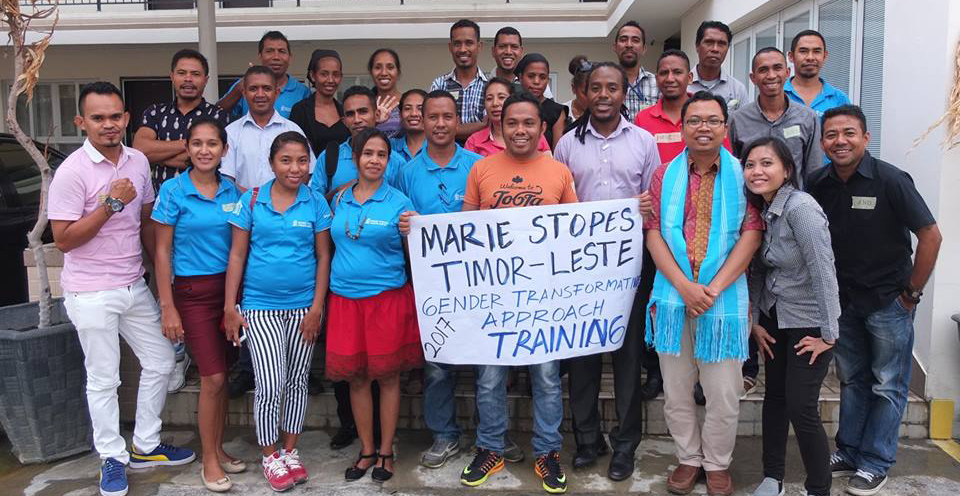
MenCare partner Rutgers WPF Indonesia collaborated with Marie Stopes Timor Leste (MSTL), a reproductive health and family planning organization, to host “A Gender-Transformative Approach to Engaging Men in Reducing Gender-Based Violence” on February 7–10, 2017.
Twenty-three health providers in Timor Leste participated in this three-day training on how to involve men as active participants and partners in family planning. The training formed part of a collaboration between Rutgers WPF Indonesia and MSTL that builds upon and adapts the work of MenCare+, strengthening the capacity of health providers to eradicate sexual and gender-based violence (SGBV) and to improve the sexual and reproductive health and rights (SRHR) of women, men, and children in Timor Leste.
In 2014, MSTL conducted initial research in partnership with the Menzies Institute about perceptions of family planning in the Timorese cities of Viqueque and Dili. This research identified men’s support as an important factor in women’s ability to access planning methods. Additional research was conducted in 2015 to further explore these findings and to better understand reproductive health decision-making in the household, with a focus on men’s understanding of – and perceptions around – family planning. The results contextualized global learning and highlighted the need to engage men in SRHR programming at both the provider and community levels.
As a result of its research, MSTL began engaging with specialists working in the field of male involvement in SRHR, with the aim of building skills among service providers and supporting future development of messaging and community engagement. In 2016, Rutgers WPF Indonesia started a collaboration with MSTL to provide expertise and technical assistance to this end.
Rutgers WPF Indonesia will help strengthen the capacity of MSTL staff to build on lessons learned from MenCare+ programming, which includes the work with health providers to engage men in caregiving, promote better maternal and child health outcomes, and increase men’s support for contraceptive use; as well as the aim to encourage community discussions around these themes.